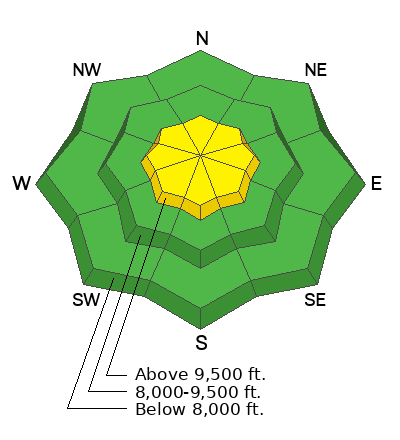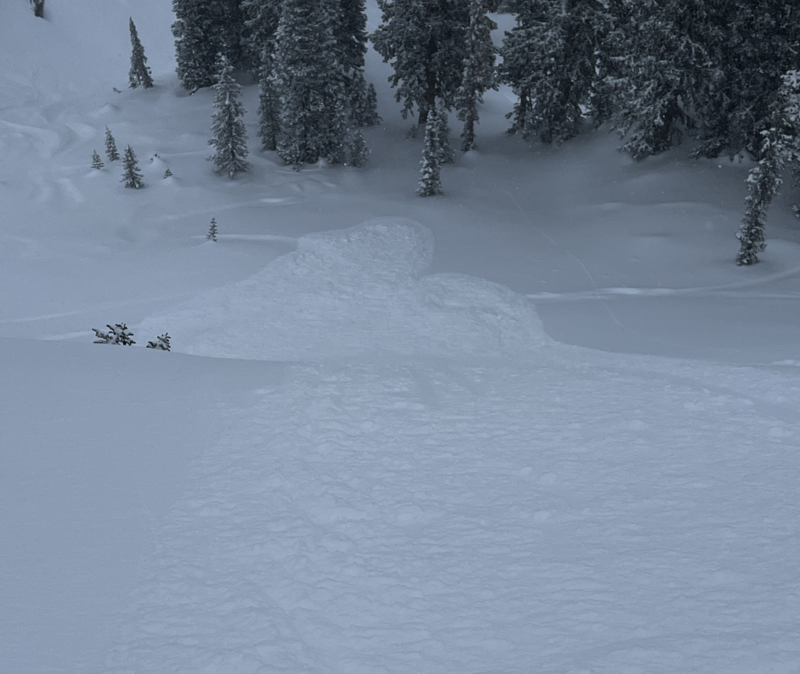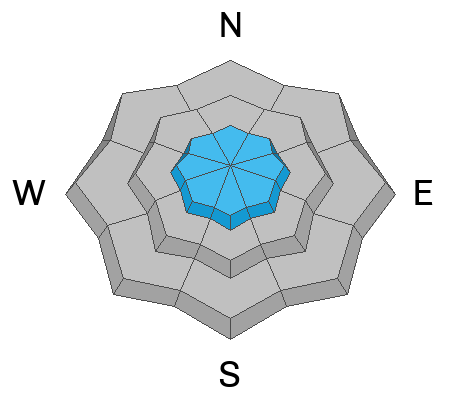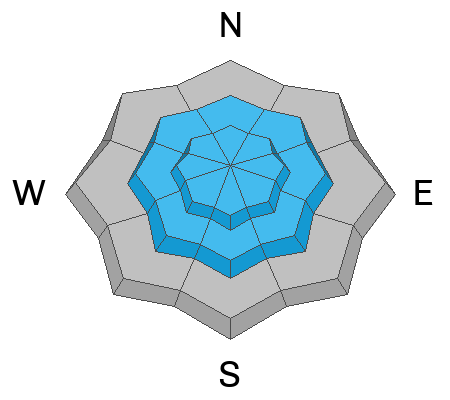Forecast for the Salt Lake Area Mountains

Issued by Trent Meisenheimer on
Sunday morning, December 24, 2023
Sunday morning, December 24, 2023
Today, the avalanche danger is MODERATE across all upper elevations for Wind-Drifted Snow. Here, you can find soft slabs of wind-blown snow that could be sensitive to the weight of riders.
Out of the wind zone, our biggest concern will be dry-loose avalanches (sluffing) within the 3-6 inches of new snow.
Out of the wind zone, our biggest concern will be dry-loose avalanches (sluffing) within the 3-6 inches of new snow.

Low
Moderate
Considerable
High
Extreme
Learn how to read the forecast here









